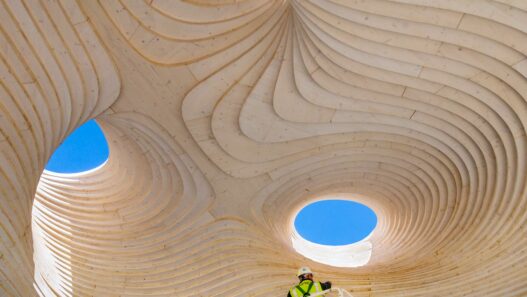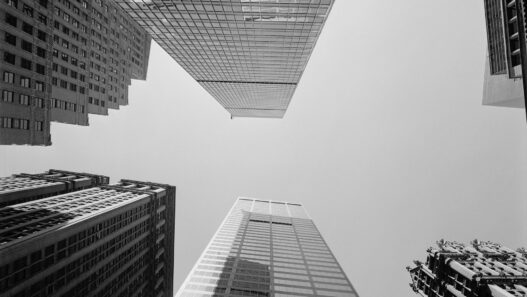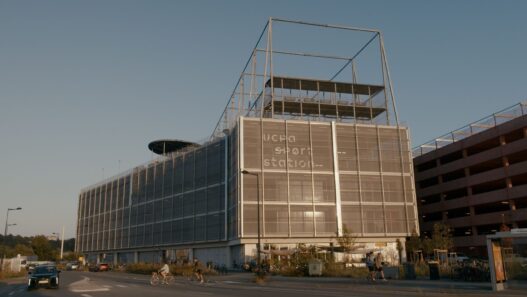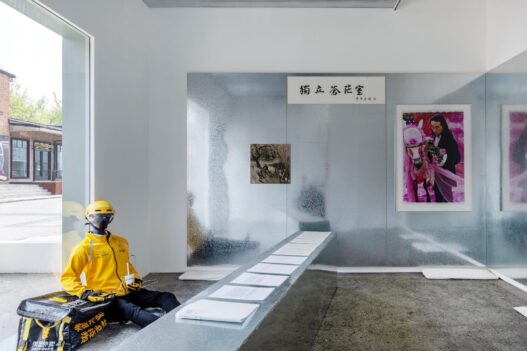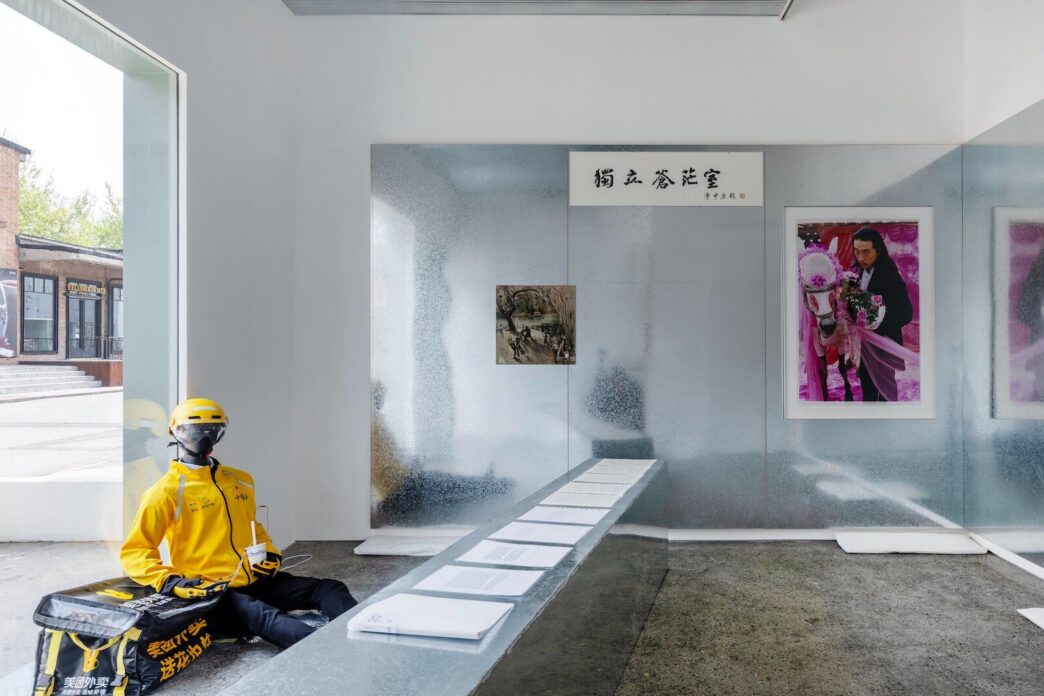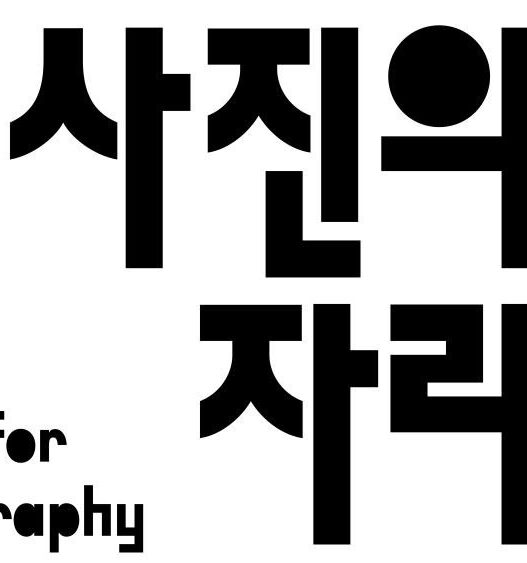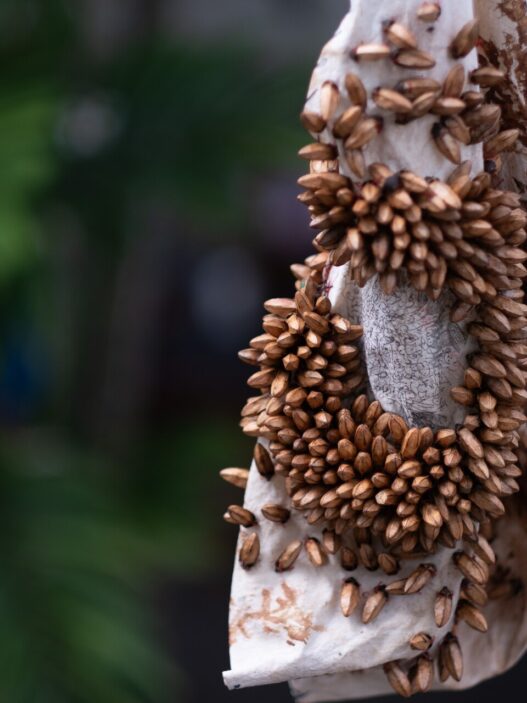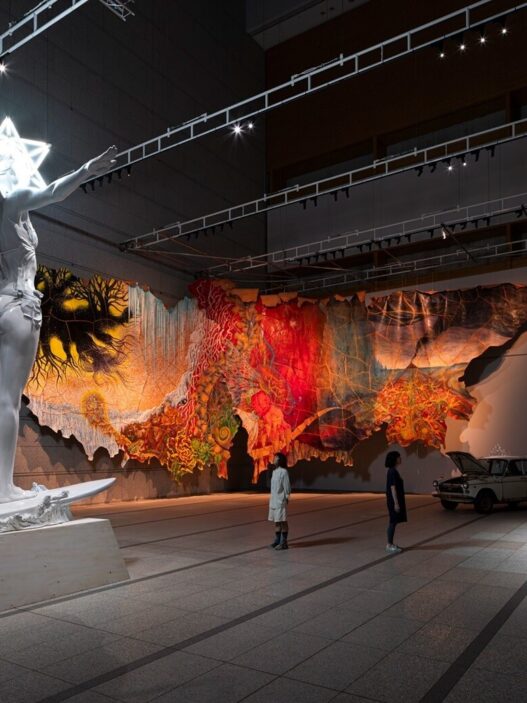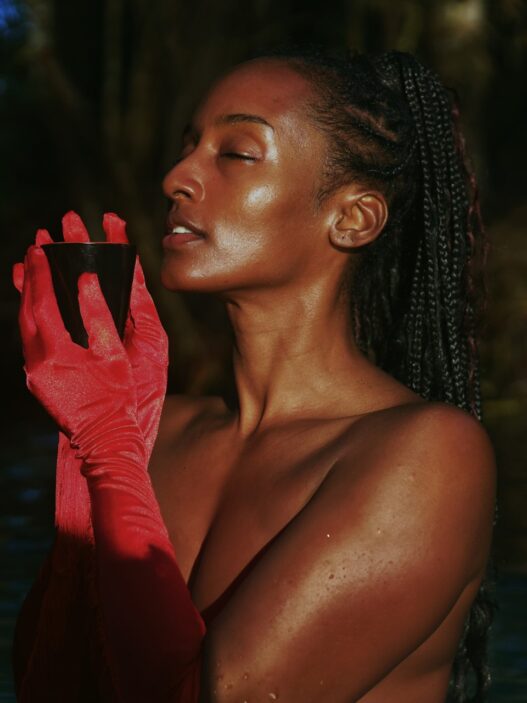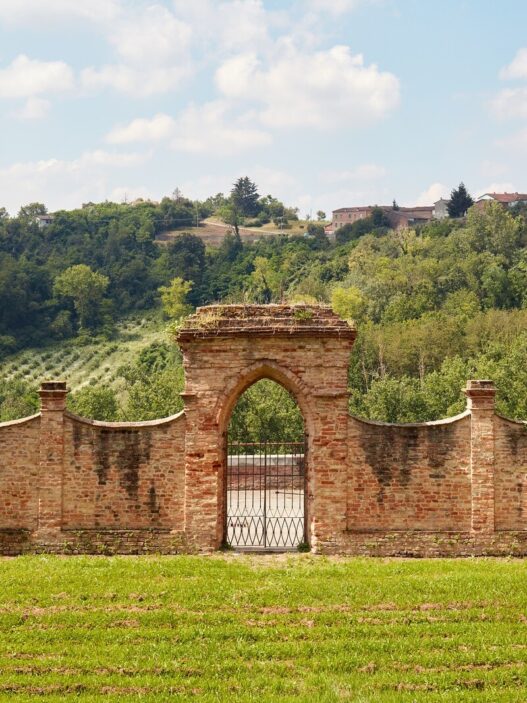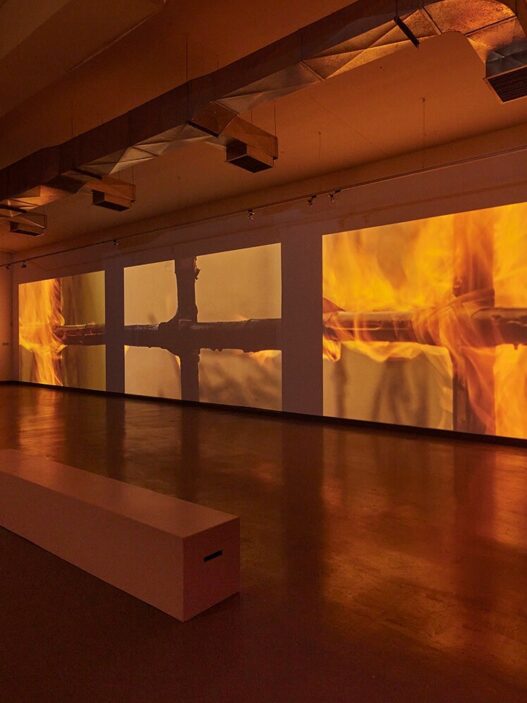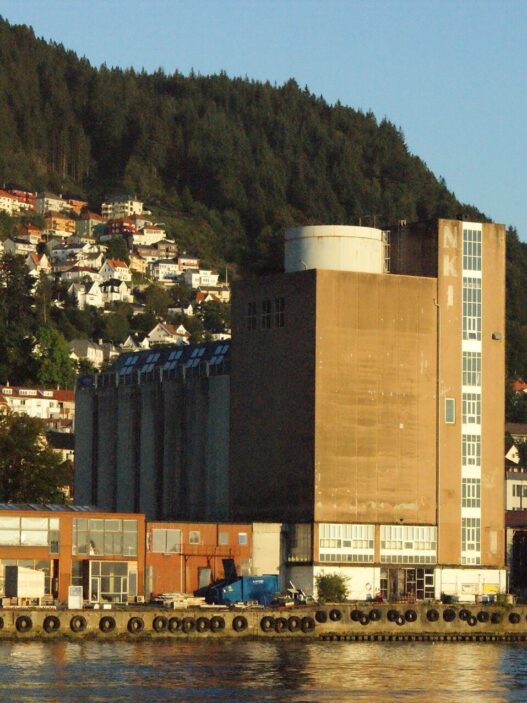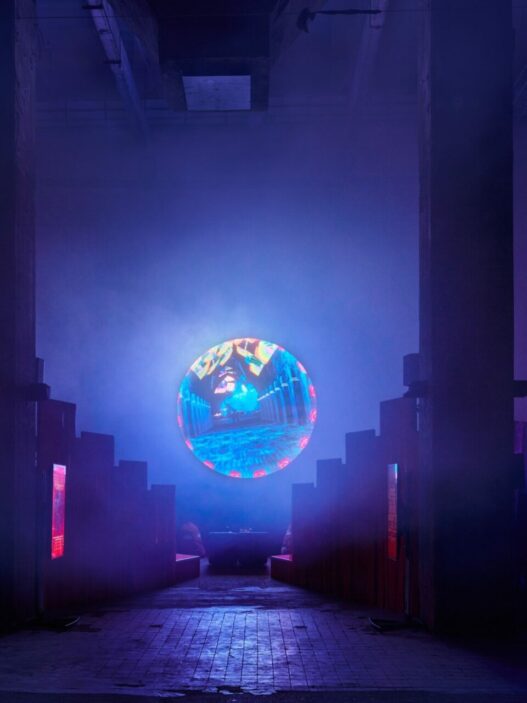Liu Ding
Room of Boundlessness
March 21–October 1, 2024
Magician Space, a prominent contemporary art gallery in Beijing, has launched “The Antechamber,” a new project space designed to host cutting-edge exhibitions. The inaugural project, “Room of Boundlessness,” features the latest work by conceptual artist Liu Ding. The exhibition, which runs from March 21 to October 1, 2024, delves into themes of solitude, social responsibility, and the intersection of personal and societal experiences.
“Room of Boundlessness” is inspired by the poem “Song of Leyou Park” by the Tang Dynasty poet Du Fu (712–770), whose verses capture a profound sense of uncertainty, political disillusionment, and historical reflection. The poem’s closing lines—“Finished drinking, I have nowhere to go; I stand in a boundless vastness, chanting a poem to myself”—serve as a poignant foundation for Liu Ding’s exploration of the complexities of the human condition and the challenges of navigating a turbulent world.
The exhibition’s title, “Room of Boundlessness,” encapsulates the dual meaning of the word “boundlessness” as both a literal twilight state and a metaphorical expression of uncertainty about the future. Liu Ding interprets this concept through a contemporary lens, using it to reflect on the solitude experienced by intellectuals and creatives who, while engaging with the world’s chaos, retreat into their own spaces to maintain clarity and a sense of purpose. This retreat is not an act of isolation but rather a method of connecting the self with broader societal challenges, ultimately exploring how individuals can take responsibility for their realities.
Liu Ding has carefully curated a collection of works and documents from renowned literati and artists to create the “Room of Boundlessness.” His intention is to offer a nuanced understanding of historical figures and events by considering aspects such as emotion, disposition, inherent nature, potential, and ambition. The exhibition is a vessel of fragmented experiences, blending Liu Ding’s personal collection with his own artworks to form a cohesive narrative that challenges conventional perspectives.
One of the exhibition’s key features is a calligraphic inscription by Professor Chen Pingyuan, a scholar of modern literary history, who has been instrumental in revitalizing the study of literature and scholarship since the early 1990s. Professor Chen’s inscription, “being solitary in the room of boundlessness,” resonates deeply with the themes of the exhibition, emphasizing the importance of intellectual rigor and innovation in the face of daunting realities.
“Room of Boundlessness” is presented in two distinct chapters, each conveying different aspects of the human experience. In the first chapter, Liu Ding transforms the exhibition space by covering the walls with eight silver iron plates, creating a stark and metallic enclosure that evokes feelings of isolation and introspection. This chapter features works that symbolize the inner thoughts of individuals who have endured varied life conditions and experiences in contemporary society. These works serve as “portraits” of despair, capturing the depression and hopelessness that can accompany such conditions.
The second chapter builds on the themes of the first, but with a focus on the excruciating agony and helplessness brought about by war. Here, Liu Ding reconfigures the space by removing and repositioning four of the iron plates, creating a fragmented and unsettling environment that partially obscures the remaining works. The viewer’s direct line of sight is obstructed in some instances, forcing them to confront the fragmented nature of historical memory and the lingering emotions that persist in the aftermath of conflict.
Through this two-part installation, Liu Ding presents a thought-provoking exploration of the unsettling historical moment we face today. “Room of Boundlessness” not only challenges viewers to reflect on their personal responsibilities but also offers a space for communal healing and understanding. It is a powerful reminder of the importance of independent thought and cultural resilience in times of uncertainty.
798 Art Zone
2 Jiuxianqiao Rd, Chaoyang Qu
Beijing
China




